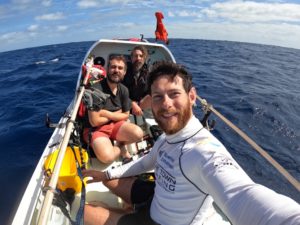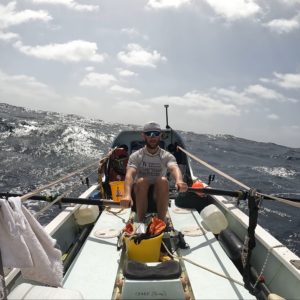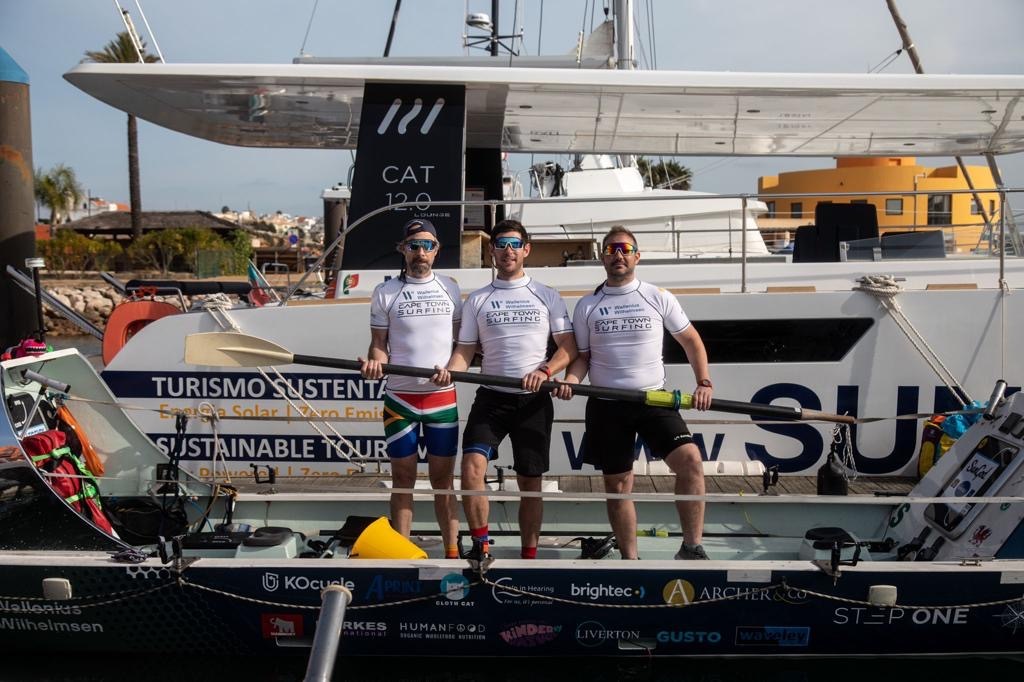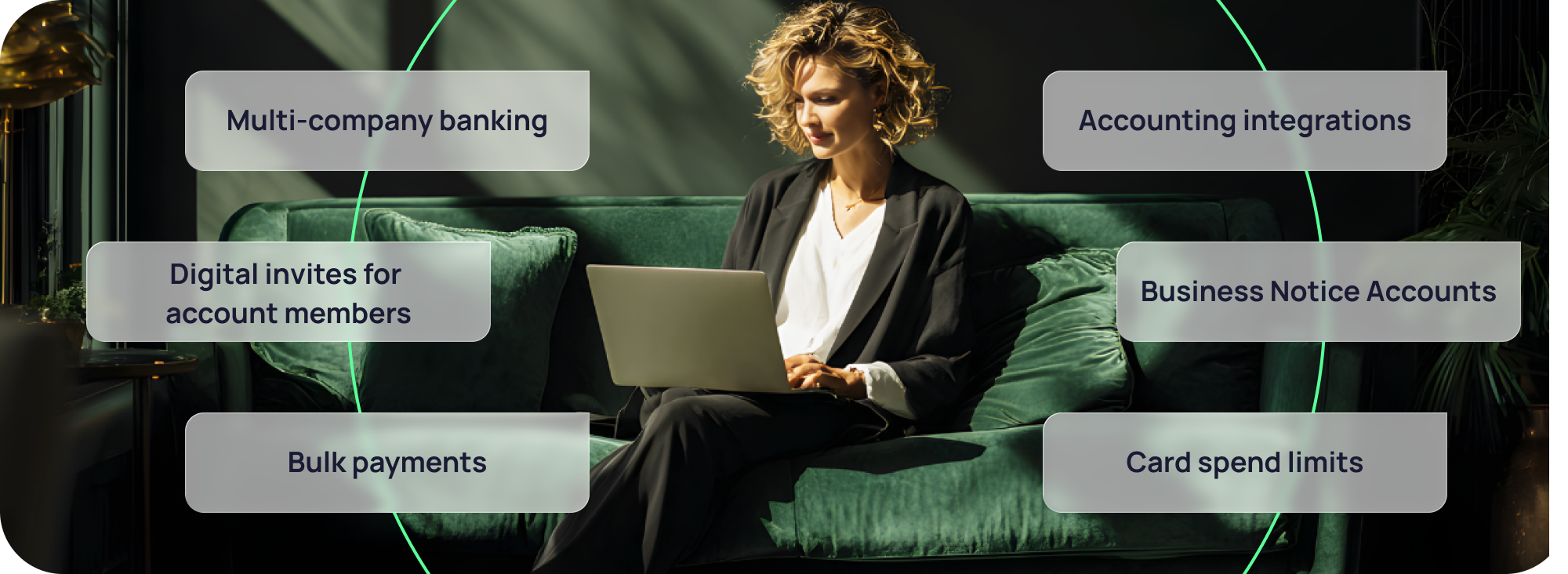We sat down with Head of Data Johnnie Ball to learn why he decided to row the Atlantic with no prior rowing experience, how he prepared and the impact he has had fundraising for Dementia UK.
The row came about as a response to watching my dad suffer with dementia and my mum care for him for nearly 20 years.
My dad had dementia for most of my teenage years – from when I was aged 13 to 29, when he finally passed away. After dad died, I decided I wanted to do something big to raise funds and awareness for people with dementia and their families – specifically, I chose to support Dementia UK. I instigated this project with two friends: Stef, who I have known since school and was there to support me when my dad first became ill; and Dirk, a surgeon who I met whilst living in Cape Town.
Rowing across an ocean seemed a significant expedition, so, after some research, the Forget Me Knot Atlantic Row was born.
Planning our course
We chose the Atlantic as it’s the most accessible from the UK and can feasibly be crossed within a 3-month sabbatical. There’s a large organised event with support ships from the Canary Islands to Antigua every year, but to me this felt like a partial crossing – I wanted to go mainland to mainland. We also wanted to complete the crossing unaided, so I extended the distance further and started planning our own route.
I decided we could go from the tip of Portugal to South America because the trade winds would support the passage to the Canaries, then Cape Verde, and across to South America. This is about 1000 – 1,500 miles further than the island-to-island and only ten boats have ever done this before. I wanted to do something that was quite extreme and unusual and the Europe to South America crossing fit the bill.

Why rowing?
I came into this challenge with no rowing experience, but that was one of the reasons I chose it. I don’t have any ocean experience (I actually get seasick!) and I thought it would be a really intense learning curve – which appealed to me. I’d never really been on an open ocean before, so I thought it would add to the challenge, being on the water was unfamiliar territory for me. In terms of endurance activities I’ve always been into land-based challenges – cycling, trekking, even some off-road triathlons – but never anything like this.
Additionally, ocean rowing is very different to river rowing. River rowing is about consistently keeping your tempo and doing hard sprints. But ocean rowing is very rough and there isn’t as consistent a stroke as you would have in a river rowing boat.
How we trained
Initially, we trained in the Netherlands with an experienced ocean rower who owned the boat that we chartered. We then brought the boat back to the UK, taking it to Southampton, where we went out in the Solent and the English Channel. Alongside that there was land based training, predominantly on a rowing machine, but I added in a lot of resistance training and flexibility work to prevent injury.
The other aspect of the training was the mental and psychological side. We had a dedicated psychologist who was working with the whole team. Stef and Dirk were both friends of mine but didn’t know each other. This was a bit of a gamble as we’d be spending two months within a few metres of each other at all times!
We worked with the psychologist, Michael, for about 4 months prior to the trip starting. Michael profiled our personalities and supported us through a behavioural plan of how we should approach difficult situations, teamwork challenges, and what to do in emergency situations. He really dug into each of our personalities to help us understand how we’d each react to situations. It’s really important you know this about each other before you go, so that you can understand how best to work with and support each other on the boat. Michael underscored the importance of always being open and honest with each other. This was critical to ensuring we had strong communication during the crossing.
The crossing begins
The hardest part of the journey was the beginning. We were incredibly seasick, we weren’t used to the vessel, and a lot of things broke on the boat at once. On top of this I was the skipper; so the crew, the vessel, the success of the journey as well as all the planning was my responsibility. It was a lot of stress knowing if I was making the right decision with so little experience myself.
Over the rest of the crossing we had some other hairy moments when we first encountered massive waves. The first time that we had to deploy the sea anchor (essentially an 80m rope with a parachute on the end) we got hit by storms. It was dark, big waves were crashing over us and over the boat, and we’re trying to deploy this piece of equipment whilst the boat is spinning about. Stef dubbed that night as a cross between Titanic and Apocalypse Now!
There was another time that I specifically remember where I was on deck in winds of 30-40 knots. It was dark and there was no moon, and when there’s no moon on the ocean there is very little light. You can’t see the waves, you just hear them, so you feel the boat go up and see that you’re at an angle, and then you feel the rushing of the wind coming and the waves from every side.
I remember a wave crashing over me from one side and knocking the boat flat on its side. It was about to tip over and I almost went over the side but I managed to throw my weight back and keep the boat upright. This was in the middle of the night, I remembered my heart going at that point as I almost went in.
The same happened to Stef, he did actually get washed over, and managed to catch the safety line. I came out of the cabin and saw him hanging on by his arms, hauling himself back in. He had a harness on fortunately – we were always harnessed on – but it’s still terrifying as we didn’t want to get dragged behind or hit by the boat!

Finishing our epic crossing
We rowed for 24 hours a day, taking the rowing in shifts of 3 hours. We didn’t stop unless the wind was blowing directly towards us so intensely that we couldn’t row against it. This happened to us in the first two weeks – you can’t row powerfully enough to fight the wind so you’re just wasting energy and it is better to stop. We ended up sitting on and off the anchor for batches of time where we just couldn’t make progress, but then after the first two weeks we only used the anchor once and rowed for 24 hours a day for about 50 days!
So, starting in the middle of winter and setting off on January 25th we reached Cayenne in French Guiana on March 30th, a 65 day journey.
Looking back on an incredible achievement
I see the project as a big success, we were followed along by BBC 5 Live presenter Rick Edwards and his co-host Rachel Burden, and they very kindly paid for our first beers and hot dinner once we reached Cayenne. Our media attention continued and we also received a shoutout from multiple Olympic gold medalist and world rowing champion Helen Glover in the last few weeks of our crossing. We now hold the Guinness World Record for the first crew of three to row from mainland Europe to mainland South America.
We raised over £50,000 for Dementia UK, and our Gofundme is still live, which will help to fund the provision of their Admiral Nurses, who are there to give one-to-one support to people with dementia and their families. This kind of support was priceless for families like mine. It was one of their biggest fundraisers of the year, so it was great to have been able to help them so much. We were also to carry out research for the South African charity Sea Search, by taking recordings of sea life as we went along. The hours of sound recording will be used in novel research into marine mammals in the mid-Atlantic.
We achieved what we set out to do: complete a mammoth physical and psychological task, honour my dad’s memory and raise as much money as we could for Dementia UK. Something that I will cherish forever.



